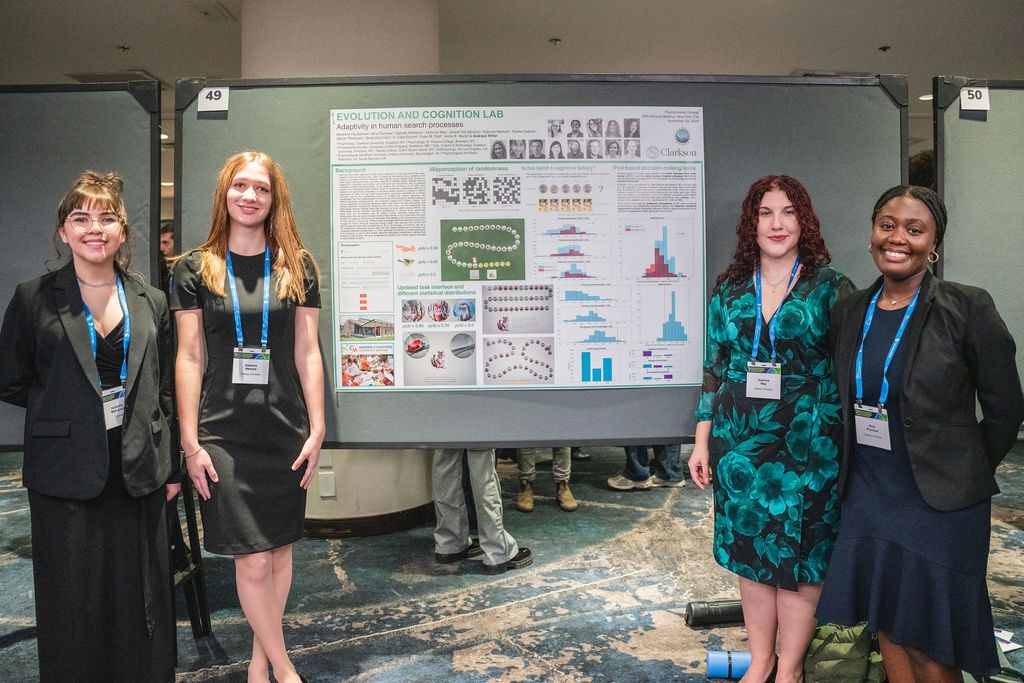Clarkson Students Present Research on Adaptivity in Human Search Processes at Psychonomics Annual Meeting
A group of Clarkson University students recently presented their research at the Psychonomic Society 65th Annual Meeting in New York City in November.

Psychology and Biology major Katerina Medved ‘27, Biology major and Honors Student Vivienne Way ‘28, Psychology major Isabella Makdouli ‘27, and Psychology Major and McNair scholar Nina Pluviose presented their research titled “Adaptivity in Human Search Processes.”
Humans and other organisms must search effectively for the resources they need, whether these are physical, like food, or informational, like patterns in the world or concepts stored in memory. Most human search studies have focused on brief static laboratory tasks, but being effective in realistic search settings requires adapting to changing environments over both short and long terms, and to changing abilities developmentally.
To investigate how young children learn to understand searchable patterns as clusters and sequences, members of Clarkson University’s Evolution and Cognition Lab developed an iPad-based decision-making task that assesses to what extent children can differentiate among objective alternation probabilities of various kinds, specifically when they are non-random and contain statistical regularities.
The distributions that were used included clumpy ones, where a hit is more likely to predict another hit nearby or vice versa, and dispersed ones, where a hit is more likely to predict a miss nearby or vice versa. Children were presented with three different animals who foraged for binary resource outcomes along a path. Task animals were paired with distinct objective alternation probabilities reflecting clumpy, random, and dispersed distributions.
“Our analyses suggest that children, indeed, hold strong expectations of clumpy resources when they search through and reason with statistical distributions,” said Clarkson Psychology Professor Andreas Wilke. “These results will be an important building block in designing statistical literacy interventions for adolescents and adults.”
The Psychonomic Society 65th Annual Meeting was held from Nov. 21 to 24 in New York City, and hosted more than 2,800 attendees from 48 countries.
